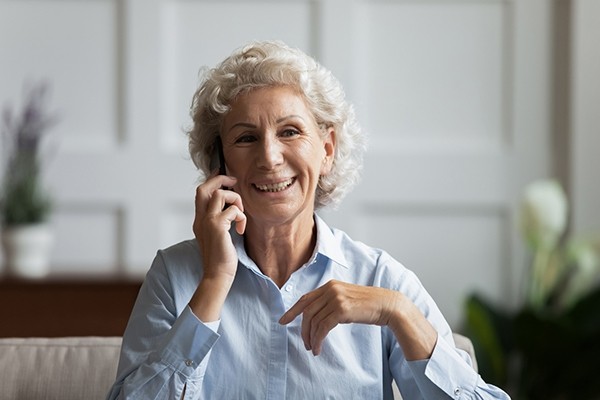The social isolation that some in our communities are feeling due to COVID-19 may be exacerbated over the coming months by both winter holidays and weather keeping more people indoors and alone. Medical Reserve Corps (MRC) units are helping to combat this isolation virtually through call programs.
Brookline MRC
When COVID started in March, the Brookline MRC in Brookline, Massachusetts, knew elders in community would be very isolated and wanted to support anyone who needed help. As the Brookline Community Mental Health Center was inundated with calls this spring, MRC volunteers with a background in mental health and a license were tapped to provide support. They talked with people who had a mental health diagnosis and therapist already and just needed an extra call a week. Callers are referred to the MRC volunteers through the Brookline Community Health Center and police social workers.
Additionally, the unit supports a Friendly Callers program modeled after their Division of Emergency Preparedness’ successful Emergency Preparedness Buddies program which matches volunteers with community members to improve their preparedness and resilience. This opportunity was open to any MRC volunteer, regardless of skillset or background. Eighteen volunteers were trained through Zoom on topics such as setting boundaries and program do’s and don’ts. Volunteers were connected with community members through the local Senior Center, call center, and referrals from the Recreation Department. Twelve buddy pairs were created, seven of which are still active. The same volunteer stays with each buddy rather than rotating. A trust and friendship has developed and buddies value the call they receive from an MRC volunteer. Sophie Gordon, who coordinates the program, encourages those who are looking to start such a program to think about how to market it to reach the people that need the program. The unit will likely re-publicize the program over the next few weeks to make sure people can get through winter.
Vashon Island MRC
On Vashon Island in Washington state, MRC volunteers staff a Community Care Team Help Line 12 hours a day, seven days a week. The Help Line launched in mid-April and volunteers contribute more than 700 hours a month to providing mental health and spiritual support to members of the community.
The mental health extension of the call line is staffed by licensed mental health practitioners who provide crisis intervention rather than therapy. They serve as a compassionate listener, assess needs, give practical advice, and link callers with services. Volunteers do a warm handoff as needed to other community resources. Volunteers are provided with training, guidelines, and a list of community, state, and national resources. Volunteers for the spiritual extension of the helpline include retired priests and a Zen monk. Helpline services are free and community members are offered up to three sessions, although no one is turned away. For some, volunteers now provide weekly 15-minute check in calls. The unit has also started Zoom groups to foster connection with a Parenting and a Senior group.
Volunteers work from home and use the Grasshopper app to manage calls. Trainings for the volunteers have included sessions on Psychological First Aid, suicide prevention, domestic violence, and resiliency building.
A postcard mailing was among the strategies used to advertise the launch of the program and 80% of those calling had heard about it through the postcard. The unit has also done media interviews and promotion through a community engagement team. The helpline has helped the unit identify additional community needs. Since launch, they have also hosted a suicide prevention campaign and are launching a coping campaign to create strength in the community.









